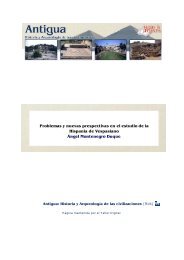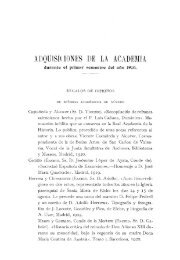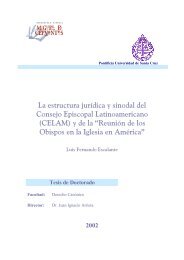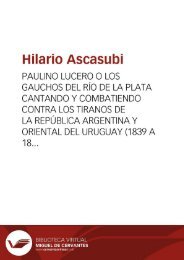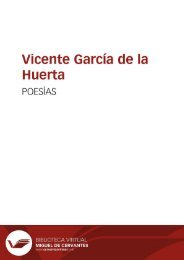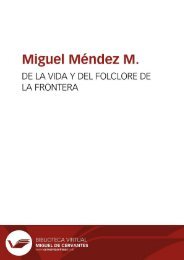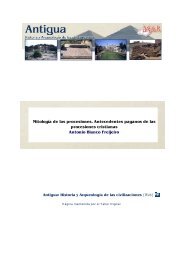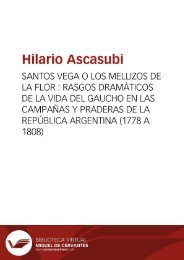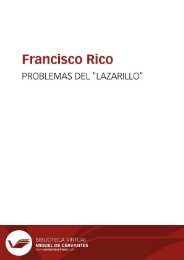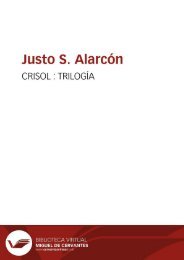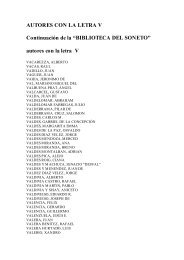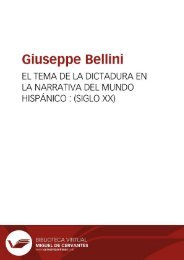Create successful ePaper yourself
Turn your PDF publications into a flip-book with our unique Google optimized e-Paper software.
Anales galdosianos [Publicaciones periódicas]. Año XII, 1977<br />
his inability to overcome his anger leads to his death 227 . Finally, he never abandons his messianic<br />
pretensions: « Yo no lo veré, quizá. Pero otras generaciones de doministas se encontrarán dueñas<br />
de una inmensa fuerza espiritual, y, sin quererlo, se les formará entre las manos, por pura ley física,<br />
la sociedad nueva » (1514). His vision of this new society, which will even do without a state, is<br />
a religious version of his old anarchistic pretensions and represents the continuation of his idealistic<br />
desire to supersede the bourgeois norm. 228<br />
We can see, then, that in spite of Ángel's conversion, he has really changed very little. Rather, a<br />
combination of psychological and material factors have led him to exchange politics for religion<br />
as the means through which he would seek the fulfillment of personal needs, especially his quest<br />
for independence and affection. This lack of change is also indicated by the fact that the narrator<br />
treats Ángel's religious convictions with the same irony with which he had presented his political<br />
pretensions. For example, as Monroe Hafter has again pointed out, through the juxtaposition of the<br />
two « bálsamos », Ángel's religious and Dulce's alcoholic, «we see the hero's 'balm' also a means<br />
to palliate bereavement, although in addition, a means possibly to hold the woman he loves». 229<br />
On his deathbed Ángel is able finally to realize the error of his religious « exaltación »: « Declaro<br />
alegrarme de que la muerte venga a destruir mi quimera del dominismo, y a convertir en humo mis<br />
ensueños de vida eclesiástica, pues todo ha sido una manera de adaptación o flexibilidad de mi espíritu,<br />
ávido de aproximarse a la persona que lo cautivaba y lo cautiva ahora y siempre » (1531). With<br />
this final conversion, Ángel claims that he has learned that there is « una cosa que vale más que<br />
la vida misma: el amor » (1531). This statement is undoubtedly a sincere expression of Ángel's<br />
charitable sentiments. Nevertheless it is not adequate, and it shows again his blindness with respect<br />
to his situation since it isolates one need (for love and affection) from the other psychological drive<br />
(independence) which has been so important in his life and, as we shall see, from the society which<br />
has provided the context of both his political activism and his religious devotion.<br />
227 Here his reversion to his «old self» is particularly noteworthy since Leré's first commandment<br />
to him was « que no se enfade nunca » (1284).<br />
228 Even Casado understands this constancy in Ángel's character: « Por mucho que se modifique<br />
externamente, entusiasmándose con el simbolismo católico y volviéndose tarumba con la poesía<br />
cristiana, detrás de todos estos fililíes está el temperamento de siempre, el hombre único, siempre<br />
igual a sí mismo » (1515).<br />
229 Hafter, p. 41.<br />
168




